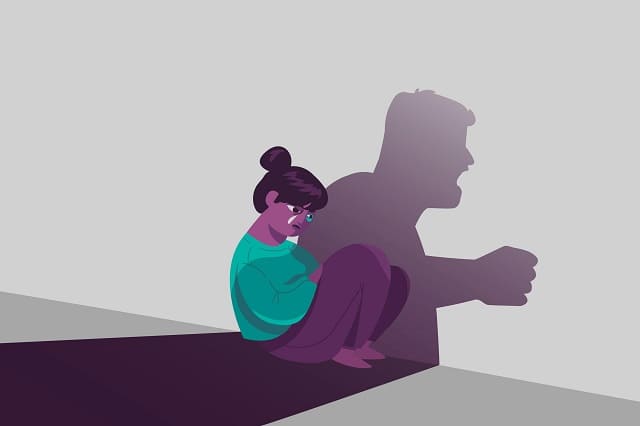
Domestic violence is horrific and painful for those who experience it, but it is often misunderstood by the public. For many people trying to understand the domestic violence law in Ohio, the Ohio Revised Code is the place to look; however, for those not in the legal profession, it can be hard to find exactly what you’re looking for and understand the jargon and nuances of the language. Here at Tyack Law, we want to break down some of this code in a way that people can readily understand.
What is Domestic Violence?
Most people roughly understand what domestic violence is, but the law differs slightly from the colloquial uses of the term. In the most basic definition, domestic violence is when one person in a household commits a violent crime against another person in the household. This violent crime can include child abuse, physical assaults, and sexual assaults, including rape. The law further details what types of conduct can result in this charge, which will be detailed in more depth throughout this post.
Who Can Be a Perpetrator of Domestic Violence?
Any person can be a perpetrator of domestic violence, but only certain people are considered under the domestic violence code. Under the code, alleged perpetrators of domestic violence must be part of the victim’s family or household.
Some examples include:
- Spouse, common-law spouse, or former spouse
- Parent, foster parents, or another person related by affinity
- A spouse, common-law spouse, or former spouse’s parent, child, or person related by affinity
- The natural parent of the child of the respondent
Who Can Be a Victim of Domestic Violence?
Anyone can be the victim of violence, but just as perpetrators must be part of a household as defined by the Ohio Revised Code, the same parameters apply to victims of domestic violence. The person must be part of a defendant’s household or family for domestic violence charges to apply. Other charges may be more suitable in cases that don’t meet this criterion.
Components of Domestic Violence
There are three ways that someone can commit domestic violence under the revised code. A first way is a knowing act of physical harm to a member of one’s family or household, defined under 2919.25 (A). The second refers to a reckless crime that results in the physical injury of someone in the household or family, as indicated by 2919.25 (B). Finally, in 2919.25 (C), threatening physical harm and making someone believe that harm is imminent in one’s household is also considered domestic violence.
What Are the Charges of Domestic Violence
For the first offense of (A) or (B), the crime is usually labeled a first-degree misdemeanor, and it can result in up to 180 days in jail. For the first offense of (C), the crime would be a fourth-degree misdemeanor, and it can result in up to one month in prison. Prior convictions increase the severity of the charge and can result in a fifth-degree felony, leading to up to one year in jail for (A) and (B) charges. For second offenses of (C), the charges can be as serious as a second-degree felony, linked to up to three months in jail. Third offenses of domestic violence can result in up to 5 years in jail. Fines for these crimes range from $250 to $10,000, depending on severity.
What Types of Abuse Count Under the Domestic Violence Law in Ohio?
Domestic violence focuses primarily on physical abuse, but it can also include threats of physical violence. Other types of abuse may play a role in domestic violence cases, and these issues are no doubt painful and important to address, but by themselves, they may not be sufficient for domestic violence charges. Other abuses may include emotional, verbal, or financial abuse.
Some classifications of types of abuse classified under domestic violence in the Ohio Revised Code include:
- Child abuse
- Assault
- Rape and Sexual assault
- Threats of harm
- Patterns of abusive behavior
As you can see, there are several types of domestic abuse and abusive behaviors that are included under Ohio law. Understanding these classifications can help people who want to understand what the law says about domestic violence cases.
Are Social Workers Required to Report Domestic Violence Under Ohio Revised Code?
There are several guidelines outlined in the Ohio Revised Code that can result in certain professionals reporting any suspected cases of domestic violence or abuse.
Social workers are mandated, reporters. What this means is that the Ohio Revised Code 2151.421 says that defined professionals, such as teachers, health care providers, and social workers, are required to file a report with the police if they suspect a child is being abused or neglected, and this abuse most often comes from people the child knows like household members.
People in professions that require them to report domestic abuse can get in trouble if they do not report their concerns; additionally, they can break confidentiality in these cases and be legally protected.
In Ohio, mandated reporters include:
- Teachers and childcare workers
- Clergy
- Healthcare professionals like doctors or nurses
- Dentists
- Psychiatrists
- Attorneys
- Audiologists
- Foster parents
- Social workers
- Coroners
- Children Services staff
Additionally, healthcare professionals under section 2921.22 necessitate must follow certain parameters to report domestic violence. This establishes a domestic violence protocol in healthcare situations. A final code of note is 5101.63 requires people in certain professions to report cases of elder abuse or neglect; again, this can include domestic violence situations.
Social workers are in place to help prevent and stop domestic violence and neglect, so they are certainly one of the most prevalent professionals who will look out for domestic violence, but they are far from the only group who must report concerns about domestic violence.
What About Physical Discipline?
In domestic violence cases, law firms often represent clients with domestic violence charges after using corporal punishment to discipline their children. Thus, for many people facing these charges, knowing what the Ohio law says about physical discipline is essential.
Physical discipline cases require a lot of nuances. In cases of physical discipline, charges may be brought because the Ohio Revised Code says that domestic violence broadly states that it is domestic violence if any household member tries to knowingly cause harm to another, and this physical harm counts as any “injury,” and it doesn’t matter how severe that injury is or how long it lasts.
Does that mean that there’s no defense in these cases when a parent has used physical discipline? No, not exactly. The prosecutor in these cases has a higher burden of proof because they have to show that a crime has been committed by the defendant beyond a reasonable doubt.
Meanwhile, the defendant has an affirmative defense; this essentially means that the jury is told in their instructions that the defendant has stated that they used appropriate means to discipline their child and that Ohio law doesn’t outlaw reasonable discipline of a child. Thus, if the jury determines that the defendant used reasonable discipline, they cannot find that defendant guilty.
What is reasonable discipline? Well, it varies from case to case, but basically, it means that the punishment is fit for the severity of the offense. Some factors that are considered include the child’s age and maturity, the behavior of the child, how the child reacted to other forms of punishment, where the punishment occurred, and the parent’s disposition as they gave the punishment.
What About Violence Against Someone Who is Not a Member of the Household?
Violence against someone who is not a household member is still a crime; however, the law has different charges for these types of crimes. One notable example of a domestic-violence associated crime is dating violence. For romantic partners who do not share a household, there are special laws in the Ohio Revised Code in Section 3113.31. This type of violence may also apply to couples who have cohabited but have not cohabited to the extent required under the parameters of domestic violence in Ohio.
When to Seek a Qualified Domestic Violence Law Firm
If you have been accused of domestic violence, it is vital that you seek a qualified domestic violence law firm and get a free consultation to make sure the law firm is a good fit for you and that you are a good fit for the law firm. Trying to defend yourself may seem like a good idea, especially if the charges are unfounded, but hiring a domestic violence lawyer adds expertise to your case and helps you get the most out of the law and the Ohio Revised Code. Lawyers understand the legal system and how to use it to build a stronger case.
Talk with an experienced lawyer today.
Fill out the form below to get started with your case evaluation.
"*" indicates required fields















